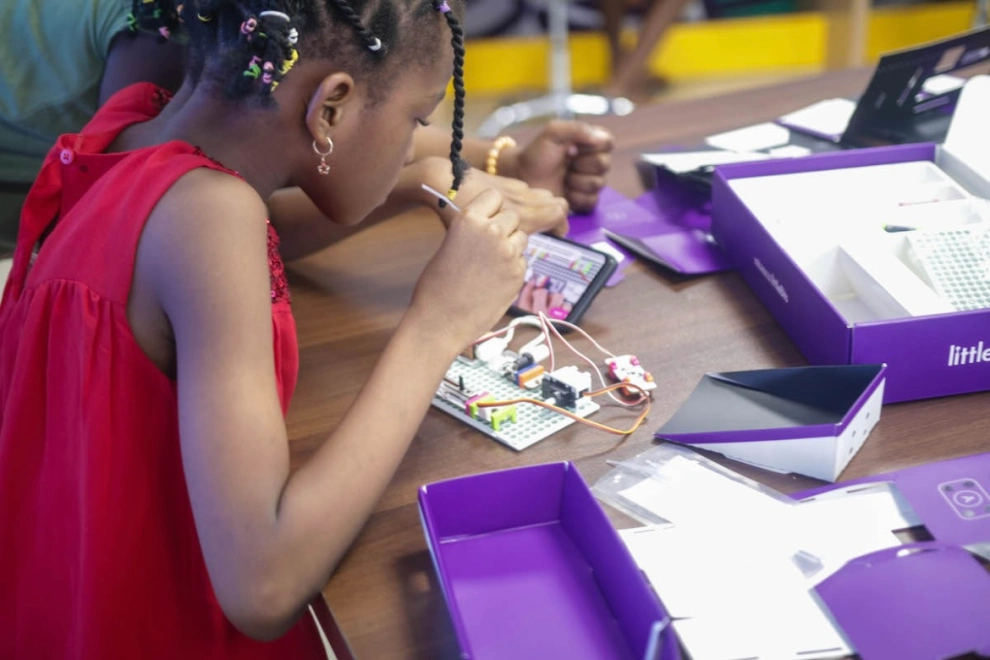Africa’s innovation hub Co-Creation Hub (CcHUB) is launching a $15 million accelerator program, an Edtech Fellowship Program, to back and support 72 startups across Nigeria and Kenya in the next three years.
The accelerator program seeks to support and amplify the impact of edtech startups across Africa and support founders offering tech solutions that will address learning innovation in an educational sector experiencing lots of problems.
Bosun Tijani, the co-founder and CEO of CcHUB said,“If we invest intentionally in a very structured edtech inclusive ecosystem of government, teachers, investors, foundations, and even in some cases, the students and their parents, we believe that we can begin to gain a better understanding of how to use technology to improve learning in schools. It is important that when we build a program that not only finds the smartest people in the startup ecosystem but also connects the startup ecosystem with government authorities, public sectors, schools, and academic institutions so that we can ensure that there’s a clear understanding of how to scale education solutions in the space.”
There are many EdTech products in the African market, however they are not addressing the right problems and most critical challenges. While many EdTech companies believe that their product will revolutionize education on the continent, very few solutions make it to the market, and majority of those that make to the market, very few are scalable.
According to Bosun Tijani, the co-founder and CEO of CcHUB, edtech’s growth in Africa is stunted and startups find it challenging to attract investment dollars because the edtech space is highly regulated, more than the casual tech observer might think and also startups rarely liaise with the government or educational institutions and vice versa. As such, Tijani thinks that launching an accelerator program with an inclusive ecosystem could result to multiple success stories and a more mature edtech industry.
Bosun Tijani said ,We’re not just going to back any startup; we’re going to see that these startups are also driving learning outcomes.”
CcHUB will provide expert support across product development, government relations, pedagogy and learning science, portfolio management, communication, instructional design and community building to the selected startups.
Bosun Tijani said, “Over the next three years, we will have 72 edtech companies launched into the market. We believe this will kickstart the ecosystem and reboot it afresh because out of that number, at least you’re sure about half or 20-30% of them would live for another three to four years. And that will allow us to know if technology can truly work for education in Africa.”
CcHUB’s Edtech Fellowship program will accept 24 startups Nigeria and Kenya yearly (12 each). The startups will receive $100,000 initial capital points to the accelerator spending over $7 million on investment and the remaining money will be used to handle other resources in the accelerator, including personnel costs as well as providing support capital to startups as they progress.
Besides the accelerator program, there’s also a provision for follow-on investment that will offer diversification and lower risk for seed or Series A investors.
According to Tijani, the follow-on capital will come from a $50 million edtech fund CcHUB plans to launch within the next 12-24 months; an anchor investor has committed an initial $5 million,and also the innovation hub is in talks with telcos like Safaricom and MTN to explore arrangements that could see them become not only investors in the fund but also distribution partners for edtech solutions in the Fellowship’s portfolio.
“This is also what’s unique about this program. The people backing us are not just saying, ‘this is money, go and invest.’ They are putting serious skin in the game and funding us to be able to raise capital, which is not common in the VC space. The way we’re looking at our pool of co-investors is stacked. We’re not only looking at VCs but development finance institutions and telcos. In general, this activity that CcHub is embarking on will derisk investment for a lot of the VCs out there who may want to put money in edtech startups,” expressed Tijani, who also added that the innovation hub would be taking roadshows across India, Europe, and the U.S. in the coming months to raise the fund.

